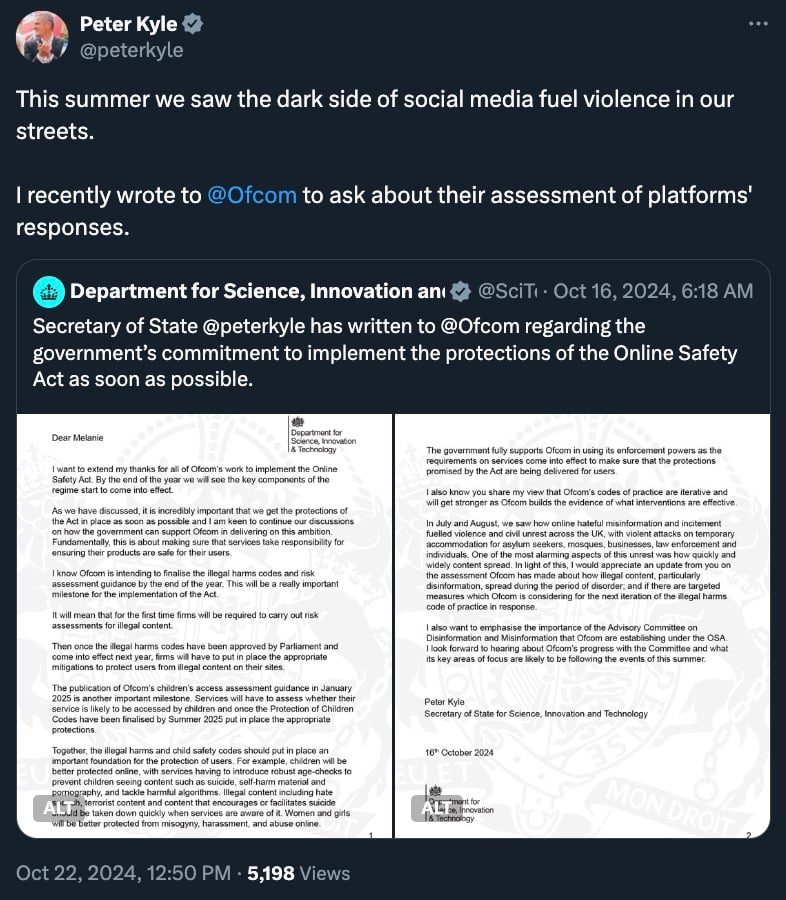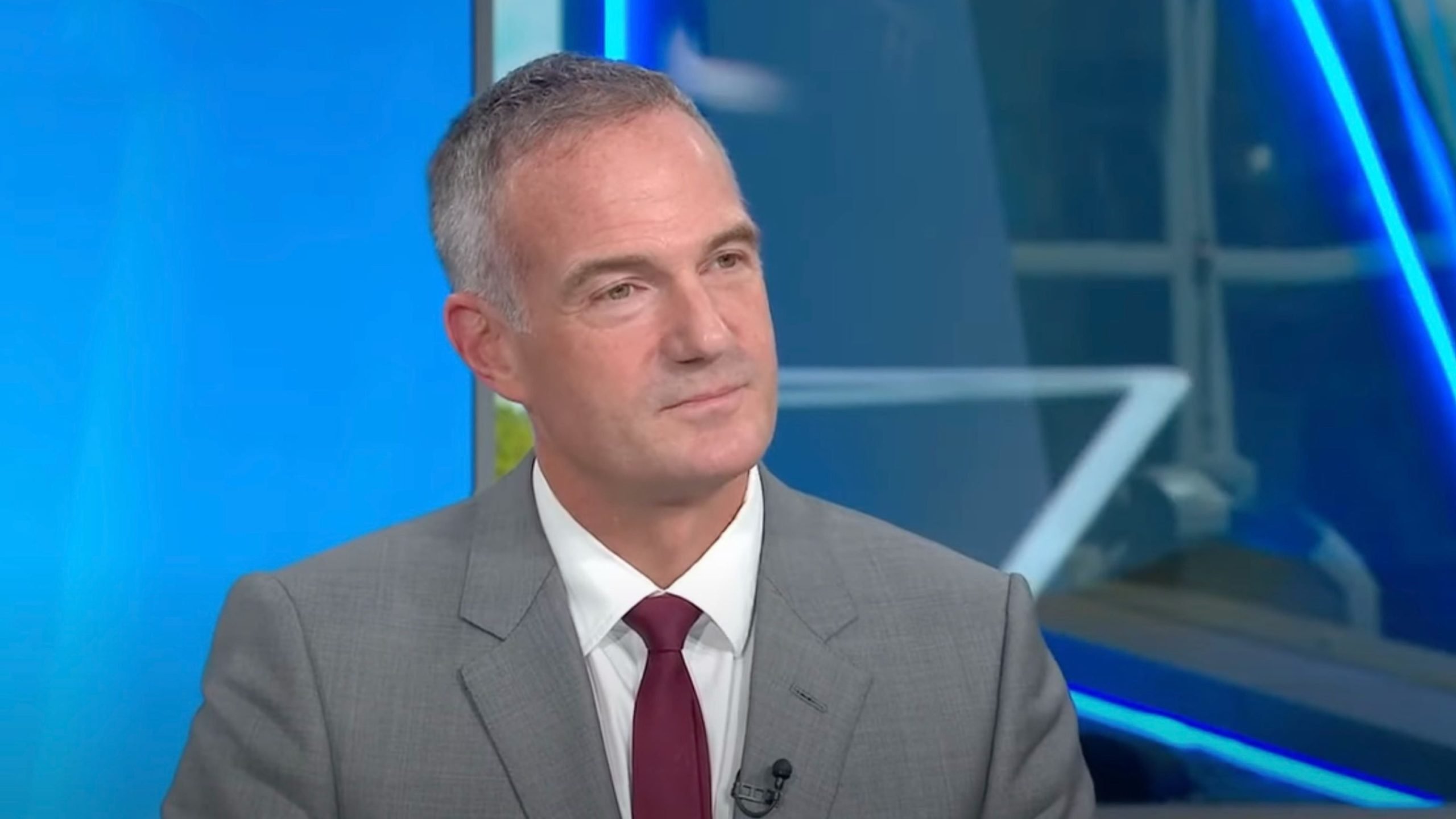UK’s regulator Ofcom (Office of Communications) was recently asked by Secretary of State for Science, Innovation, and Technology Peter Kyle to produce a response about how they “assess” social platforms’ responses after the riots earlier in the year and what progress has been made in implementing the Online Safety Act.
The response to Kyle reveals Ofcom wants social networks to change their algorithms as a way to combat “misinformation,” and pledges that those that don’t censor information treated by the authorities as “false” will face tougher action against them.
The premise has always been that since the events of the summer known as the Southport riots, they were strongly influenced by social media and “misinformation.”
And now Ofcom has responded to Kyle by once again reiterating this position – and presenting the regulator’s ideas and progress to further tighten the screws on online speech.

A letter signed by Chief Executive Melanie Dawes first seeks to reassure Kyle of Ofcom’s commitment to implementing the UK’s censorship law, the Online Safety Act, “as quickly as possible.”
Dawes then recalls that this law introduces new legal obligations not only on social platforms, but also on sharing apps, gaming and messaging services, and search engines.
Ofcom is at the same time setting up its Advisory Committee on Misinformation and Disinformation – which critics see as a “censorship committee” – that will start operating early next year.
As for Ofcom’s “assessment” regarding the role of online platforms – after the killing of three children, which sparked the riots – it is that “illegal content and disinformation” was spreading quickly online, and that there was “a clear connection between online activity and violent disorder seen on UK streets.”
Dawes also writes that “most online services took rapid action in response to the situation, but responses were uneven.”
In the future, Ofcom expects social platforms to include prohibiting “illegal and hateful” content in their terms of service, and do that in a “clear way.”
“Swiftly” taking it down is another requirement, as well as allowing users an easy way to complain about content.
Finally, platforms will have to assess if changes to the recommendations systems are “likely” to lead to the exposure of users to what Ofcom considers illegal material.
Dawes further writes about “evidence” that “illegal and harmful content” about Southport riots was amplified thanks to these systems, by “some services.”
The chief executive adds, “We will expect services to be able to show how they test their recommender systems following any changes to ensure they don’t expose users to additional risk.”










